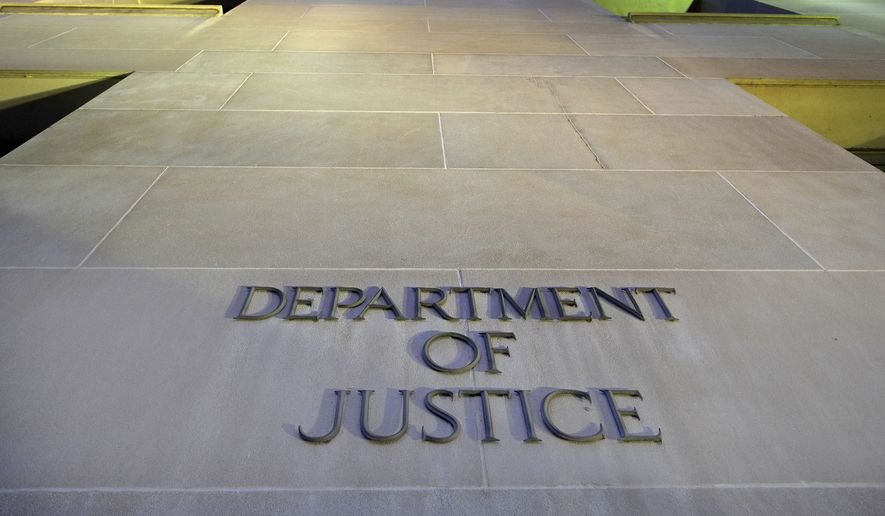The Justice Department was sued in federal court Tuesday on behalf of hundreds of donors whose otherwise anonymous political contributions were secretly monitored by the FBI.
Attorneys filed the class-action complaint in San Francisco federal court this week on behalf of individuals who previously contributed to a now-defunct legal fund established for Barrett Brown, a Texas-based journalist who was arrested in September 2012 and subsequently indicted on more than a dozen counts related to the FBI’s investigation of a 2011 cyber intrusion, among other charges.
Hundreds of contributors from throughout the United States ultimately donated more than $40,000 towards the journalist’s legal fund through Free Barrett Brown, an online crowdfunding campaign launched shortly following his arrest by Kevin Gallagher, a San Francisco-based systems administrator. According to Tuesday’s lawsuit, however, the Justice Department violated the constitutional rights of those contributors when it secretly obtained information about Mr. Brown’s supporters from the internet company that hosted the fundraising site.
Brown’s prosecutor, Assistant United States Attorney Candina Heath, subpoenaed WePay in January 2013 seeking “any and all information” pertaining to Free Barrett Brown, including the names of its contributors and the amount donated by each. In doing so, according to the lawsuit, the Justice Department violated each contributors’ right to speak and associate anonymously, in addition to infringing their right to privacy as protected under the California state constitution as well as the Stored Communications Act, a federal statute that says a search warrant is required for investigators to obtain electronic communications.
The donor information was sought in connection with the FBI’s own investigation into Brown, according to the lawsuit, despite being “completely irrelevant to the charges levied against the journalist” and never introduced in court.
“The true goal of the WePay Subpoena … was to facilitate the unlawful surveillance of the anonymous donors to the crowdfunding campaign,” the lawsuit alleges.
“Learning that these records were sought and obtained was highly unsettling, and I felt that I had to do something about it. If we don’t send a message to the government that it’s not OK to target private legal defense efforts, then they will continue to get away with these sort of things,” Mr. Gallagher said in a statement announcing the lawsuit.
“The donations were acts of political expression, showing the donors’ frustrations with what they perceived to be government bullying and prosecutorial overreach,” his attorneys wrote in the complaint. “The First Amendment protects the donors’ right to send these donations and messages, and it protects their right to remain anonymous while doing so.”
Brown, 35, initially landed on the FBI’s radar on account of his involvement with Anonymous, a loose-knit hacktivism group. He had admittedly collaborated with its members prior to having his laptops confiscated in March 2012 during the course of an investigation involving the group. He published a YouTube video six months later taunting one of the authorities involved in the probe, FBI Special Agent Robert Smith, and was arrested soon after and charged with threatening a federal official.
Federal prosecutors went on to charge Brown with several counts related to Anonymous’ breach of a Texas consulting firm, Stratfor, in addition to other charges related to the hack and a subsequent, supposed coverup. He pleaded guilty in 2014 and was released from prison in November.
Tuesday’s suit names the U.S., Ms. Heath and Mr. Smith as defendants, and requests a jury trial on behalf of all anonymous donors who contributed to Brown’s defense fund and subsequently subject to government surveillance.
Attempts to reach defendants for comment through U.S. District Court for the Northern District of Texas were not immediately successful Tuesday.
• Andrew Blake can be reached at ablake@washingtontimes.com.




Please read our comment policy before commenting.